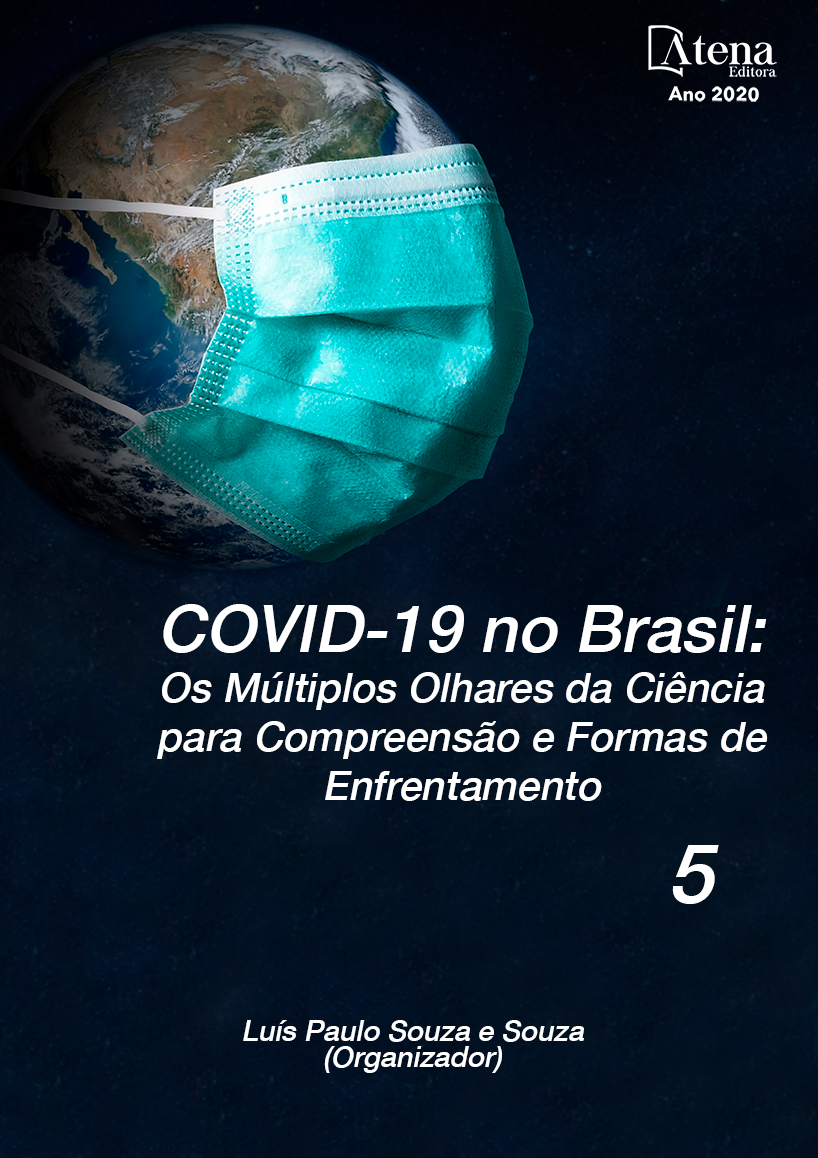
ENSINO REMOTO: AULA EXPERIMENTAL NA PANDEMIA
A necessidade de inserção de atividades remotas foi imposta pela realidade da pandemia do COVID-19, a demanda tecnológica ansiava por novas estratégias didáticas direcionadas a interação dos docentes e discentes nas tecnologias de informação. A urgência em aplicar as inovações tecnológicas e da informação nas aulas, potencializou-se pela necessidade do ensino remoto, obrigando o educador a superar os entraves e viabilizar aos estudantes assimilar o conteúdo. Porém, para aula prática remota há estranhamento de como instigar os estudantes a realizá-la, também se terão os materiais necessários a execução, visto haver déficit de participação dos discentes remotamente, devido as dificuldades socioeconômicas relacionadas à internet e a equipamentos. Por isso, a aula prática/experimental deve pautar materiais simples e ações que não ofereçam riscos ao educando. Portanto, objetivou-se estimulá-los a confeccionar sua própria máscara de barreira microbiana reutilizando tecido de camisa velha e instigá-los a analisar a importância de proteger-se perante a situação da pandemia viral e desenvolver o senso de responsabilidade diante da proteção de si e dos outros. Assim, desafiou-se na plataforma de ensino a confeccionarem a própria máscara reutilizando tecidos e materiais caseiros; veiculou-se alguns vídeos da confecção da máscara e solicitou-se a postagem de fotografias dos materiais, da confecção e utilização. A atividade revelou-se interessante, os estudantes expuseram suas inseguranças na confecção, contudo o interesse desencadeou a pesquisa de opções de máscaras com execução simples, tendo êxito alguns estudantes. Também houve a preocupação com a eficiência da proteção caseira, consultando os critérios de eficácia no site do ministério da saúde. Houve sensibilização da responsabilidade, de forma satisfatória e salutar, além do interesse ativo do educando de maneira responsável e criteriosa. Portanto, as atividades práticas simples podem desenvolver habilidades indispensáveis a consolidação do ser humano íntegro, responsável e preocupado com a proteção individual, coletiva e ambiental.
ENSINO REMOTO: AULA EXPERIMENTAL NA PANDEMIA
-
DOI: 10.22533/at.ed.57720031221
-
Palavras-chave: Aula prática; Estratégia didática; Habilidades atitudinais
-
Keywords: Practical class; Didactic strategy; Attitudinal skills
-
Abstract:
The need for insertion of remote activities was imposed by the reality of COVID-19 pandemic, technological demand yearned for new teaching strategies aimed the interaction of teachers and students. The urgency to apply technological and information innovations in classes, was enhanced by the need for remote teaching, forcing the educator to overcome obstacles and enable students to assimilate the content. However, for remote practical classes there is strangeness on how to instigate students to perform it, also will have the necessary materials to execute, since there is a deficit in the participation of students remotely, due to the socioeconomic difficulties related to the internet and equipment. Therefore, the practical class should guide simple materials and actions that do not offer risks to the student. The objective was to encourage them to make their own microbial barrier mask by reusing old shirt fabric and to encourage them to analyze the importance of protecting themselves in the face of the viral pandemic situation and to develop a sense of responsibility towards self-protection. Thus, the teaching platform was challenged to make the mask itself by reusing fabrics and homemade materials; videos were made available teaching of the mask were made and it was requested to post photographs of the materials, the making and use. The activity proved to be interesting, the students exposed their insecurities in the making, however the interest triggered the search for options of masks with simple execution, with some students being successful. There was also concern about the efficiency of home protection, referring to the effectiveness criteria on the website of the Ministry of Health. Responsibility was sensitized in a satisfactory and healthy way, in addition to the active interest of the student in a responsible and judicious manner. Therefore, simple practical activities can develop skills that are indispensable for the consolidation of the whole human being, responsible and concerned with individual, collective and environmental protection.
-
Número de páginas: 14
- Igor Cassimiro dos Santos
- Rosanne Lopes de Brito


